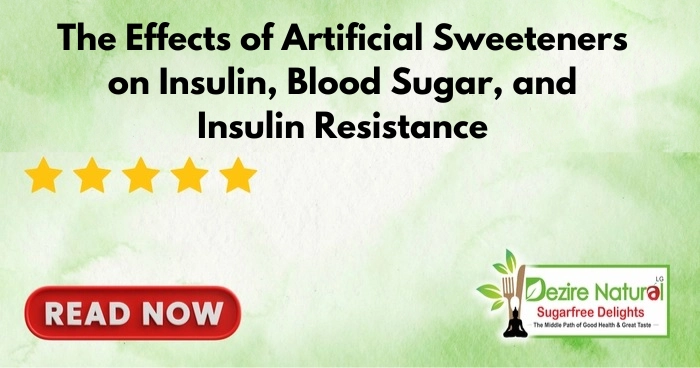People seem to be praising the advantages of a sugar-free diet everywhere you turn. However, not all sugar is made equal, and no single strategy is ideal for every person’s objective and taste. Here are some important details on sugar, sugar alternatives, and diets devoid of sugar.
What is sugar?
Among the various forms of carbohydrates are sugar, starch, and fiber. While sugar is not a macronutrient (a nutrient the body utilizes in significant quantities), carbs are. White table sugar is one of the various varieties of simple carbohydrates that are referred to as sugar. This most popular sweetener, also known as sucrose, is utilized in baked goods and sweet desserts.
There are various different kinds of sugar that occur naturally in food, such as grains, dairy products, fruits, and vegetables. Sucrose is just one of them. Other sugars that are naturally occurring are:
- Fructose
- Galactose
- Glucose
- Lactose
- Maltose
Is sugar bad for you?
Sugar isn't always harmful. In actuality, it's essential: Our bodies are powered by sugar. Much of the carbs that are consumed by the body are converted by it into glucose, or sugar. The cells extract the glucose from the bloodstream and use it for fuel and energy. It is not a good idea to cut off natural sources of sugar and other carbohydrates from your diet, such as grains, dairy products, and fruits. However, you have control over the source of sweetness in your food.
Consider your sources of sugar
Naturally occurring sugar and added sugar are very different. Processed foods like bread, pastries, candies, soda, fruit punch, sweet tea, and even condiments like ketchup and barbecue sauce are loaded with sugar. As a result, a lot of individuals eat a lot of added sugar, which has no nutritious value.
Natural sugar is present in sweeteners including fruit juice, honey, molasses, and maple syrup, which also offer some nutritional advantages. Fruit contains antioxidants, vitamins, and fiber. Antioxidants and minerals including iron, zinc, calcium, and potassium can be found in even raw honey and maple syrup.
What are sugar substitutes?
Sugar replacements have a sweet taste but are sugar-free. Some of them have no calories at all, and others have fewer calories than sugar. Foods tagged as "low carb," "keto," "sugar-free," or "diet" frequently contain sugar alcohols, artificial sweeteners, and novel sweeteners—three types of sugar alternatives.
Artificial Sweeteners
The majority of artificial sweeteners, also known as nonnutritive sweeteners, are made in laboratories using chemicals. Some are derived from organic materials such as herbs. They can have 200–700 times the sweetness of regular table sugar.
Historically, the only available choice for those who needed to keep an eye on their weight or blood glucose levels was artificial sweeteners. According to some scientists, artificial sweeteners might cause weight gain and even cancer. However, this is still a topic of investigation, and previous studies that have shown health problems have only looked at animals, not people. If a person does not exceed the recommended daily dosage of any of these products, human studies have demonstrated that they are typically safe.
Several artificial sweeteners have been approved by the FDA.
- Acesulfame potassium (Ace-K)
- Advantame
- Aspartame
- Neotame
- Saccharin
- Sucralose
Sugar Alcohols
Sugar alcohols are synthesized, much like artificial sweeteners (usually from sugars themselves). There are sugar alcohols in a lot of processed meals. They enhance the flavor and texture of goods like chewing gum and hard candies, yet they're not as sweet as artificial sweeteners. In certain individuals, they may result in gastrointestinal irritation such as gas, bloating, or diarrhea.
Sugar alcohols are subject to labeling requirements for dietary data, unlike other sugar alternatives. As examples, consider:
- Erythritol
- Isomalt
- Lactitol
- Maltitol
- Sorbitol
- Xylitol
Novel Sweeteners
Natural sources are the source of novel sweeteners. Often referred to as "plant-derived noncaloric sweeteners," this relatively new class of sweeteners offers many of the advantages of natural and artificial sweeteners, such as fruit or honey. Novel sweeteners don't cause blood sugar spikes or weight gain because they aren't a substantial source of calories or sugar. Compared to artificial sweeteners, they are also usually less processed and closer to their natural sources.
Examples include:
- Allulose
- Monk fruit
- Stevia
- Tagatose
Both monk fruit and stevia are organically derived from plants, and some people think they taste a lot like ordinary sugar.
According to the FDA, these sweeteners are "generally regarded as safe," which implies that using them for the intended purpose is safe.
Should I reduce my intake of sugar?
If you cut out all sugar from your diet, you may be missing out on vital nutrients that are present in dairy, whole grains, and fruits. Diets like the ketogenic diet, which exclude all sugar and carbohydrates, may be detrimental to your health.
Our body would have to find other ways to get energy if there was no sugar. As a result, they run on ketone bodies, which are compounds made by the liver; in other words, they force the body into starvation mode. The "keto flu" can induce symptoms including weariness, headaches, and fogginess if one follows a diet devoid of carbohydrates or sweets.
While eliminating all carbohydrates from your diet is not advised, dietitians do advise drastically reducing your intake of highly processed foods and drinks with added sugar and artificial sweeteners.
What tasty means of maintaining good health then?
If you'd like to cut back on refined sugars in your diet, here are some suggestions:
• If you really must use a sweetener, think about utilizing stevia as a sugar substitute or experiment with combining sugar and stevia.
• Consume a lot of entire foods, including dairy products, fruits, vegetables, whole grains, fish, nuts, and seeds.
• Give up fruit juices, soda, energy drinks, and sugary teas.
• As a sweetener, use entire fruit. Blend dates into a smoothie or add mashed banana to breakfast.
Keep an eye out for "healthy" foods like granola and energy bars that have extra sugar by reading the nutrition facts label on food packaging.

